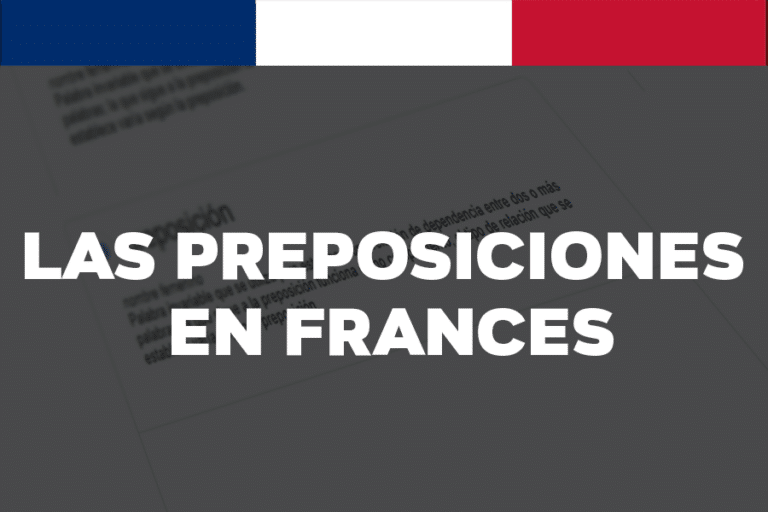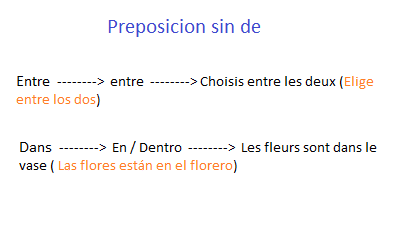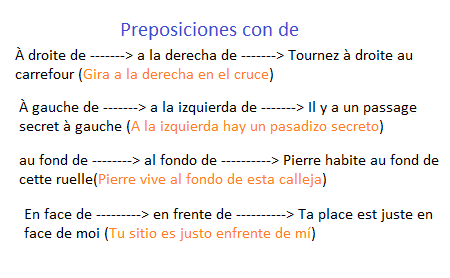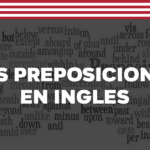In the world of grammar, prepositions are important because we use them every day without you even realizing it. These are defined as words that join a complement to another part of the sentences in order to describe the relationship between the two elements.
These relationships that we told you back here are usually for example of direction, position or time but they can also have another purpose than the ones we just named you.
Now focusing on those who study the French language, prepositions can be what is most difficult for you to learn or one of the most complicated things. Why is it like this? Because the words, the meanings, and the ways in which words are written prepositions in French They take time to learn, understand or memorize as it takes time to study them. But don't worry, here we will show you the easiest way.
Now let's differentiate the types of prepositions so that you are already familiarizing yourself, first we have the position and then the of place (to where, from where, where).
French prepositions of position
All the prepositions of position in French They are the ones that generally put an object in a space, that is, they place it, an important fact is that they are used in the same way as in Spanish, either from the front of the name or it can also include the preposition “de”.
So that you can better study and understand this category, we divide the prepositions of position in two, as follows: those that do not carry and those that carry.
Preposition without de
The prepositions in French without de are the ones that will never ever have “de” and are always used in front of what we write. Below we will give you some examples so that you can better guide yourself in the study of this complicated subject. First we will tell you the preposition in French, then what it means in Spanish and finally we will give you an example.
- Devant ——–> in front / in front ——–> Ils t'attendent before la porte (they wait for you in front of the door)
- South ——–> about ——–> Le chat dort on the sofa (the cat is sleeping on the sofa)
- Derrière ——–> behind ——–> J'ai compreu un bruit rear moi (I heard a noise behind me)
- Sous ——–> under / under ——–> J'aime marcher under la pluie (I like to walk in the rain)
- Contre ——–> against ——–> La voiture s'écrasa salary. le mur (the car crashed into the wall)
In the photo below we will leave you more examples of prepositions in French without de so that you can learn, so we already happened with the other type of preposition.
Preposition with de
These types of prepositions carry "from" to be able to refer to something, or to be able to complete a sentence with information. But sometimes it is not necessary to use the "of" because it is used absolutely.
Here we will show you a comparison:
- She lives tout nearly chez moi.
She lives very close to my house
- She lives tout near.
She lives very close.
Below you will have a complete list with the prepositions in French that have “de” (as we did before, we will first tell you the preposition in French, then in Spanish and then an example in the language of France).
- Près de ——–> near ——–> Il ya une taxi station nearly la gare (There is a taxi rank near the train station)
- au-dessous de ——–> below ——–> The température is below de zéro (The temperature is below zero)
- au milieu de ——–> in the middle of ——–> À l'instant, je me sens between de nulle part (At the moment, I feel in the middle of nowhere)
- Loin de ——–> far from ——–> Gardez les enfants far from l'étang (Keep the children away from the pond)
Prepositions of place
If we look closely, "where", "where" or "from where" they mean the same thing but we are only changing the preposition, right? What we know is that the letter "a" in Spanish indicates a destination where we want to go or direction, "from" indicates the city where you live or origin and finally "in" indicates a territory or place that we occupy.
- I'm going to Buenos Aires.
- I am in buenos aires.
- I come from Buenos Aires.
We will see that in French the exact same prepositions are used for “where” and “where”, you will be thinking how you do to find out, the answer is that you have to look at the verb and also in the context of the sentence Without further ado, be very attentive because you have to observe which preposition to use because you can make your sentence not make much sense.
- I come from Paris.
- I'm going to Paris.
- Je suis a Paris.
We hope this article has helped you to review or learn this topic in French, we wish you the best of luck for your study, and to make it easier for you, here is a video explaining the topic:






